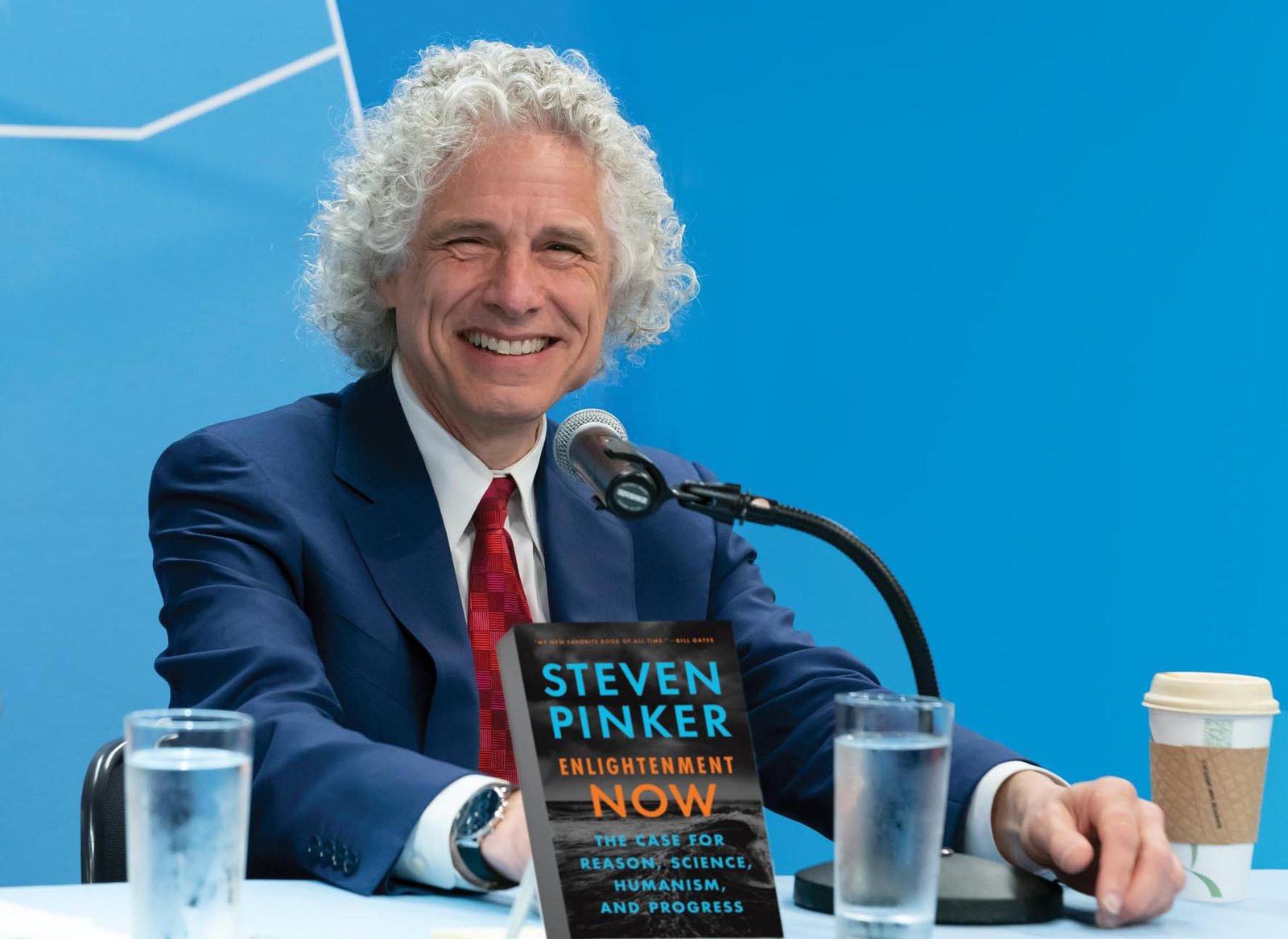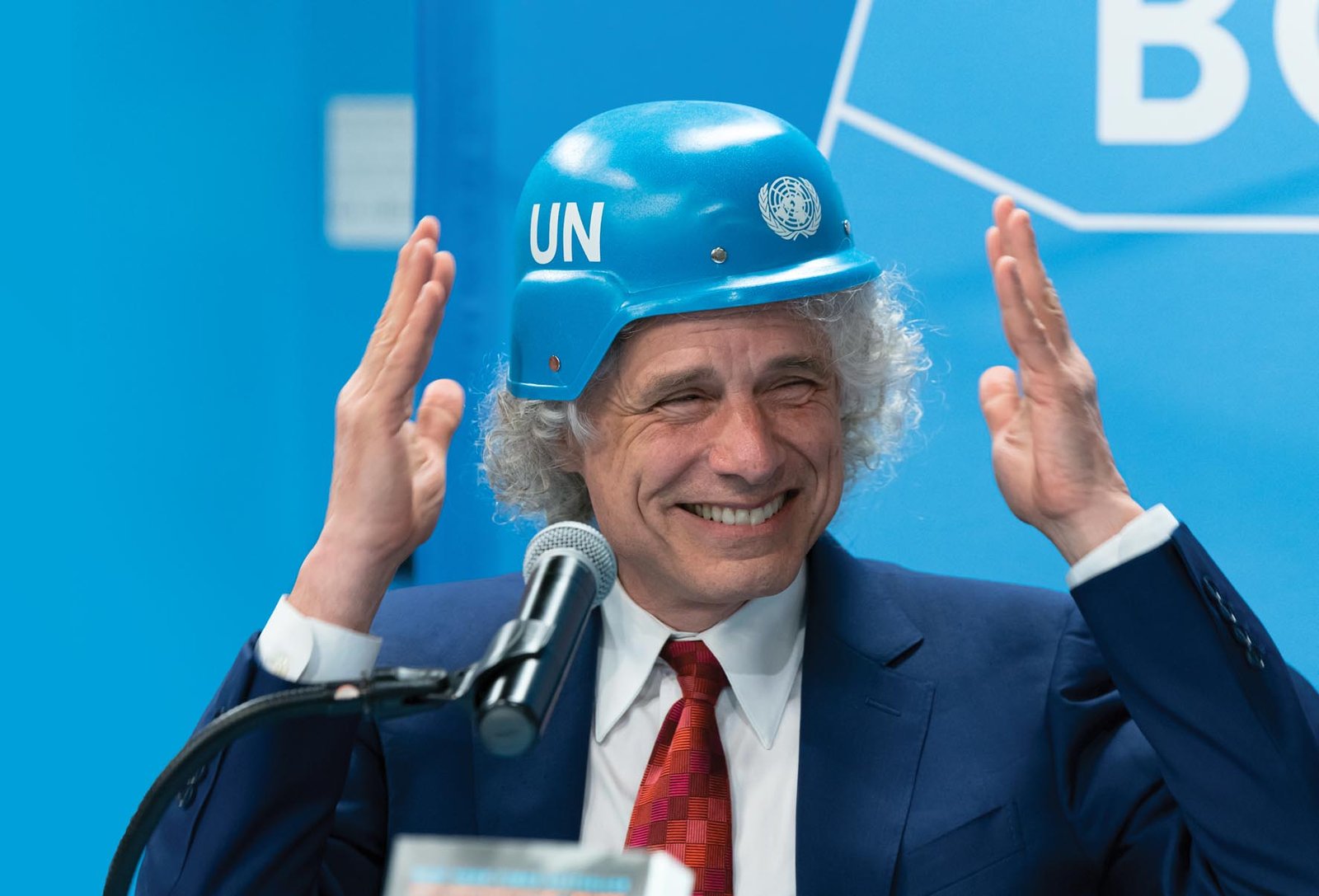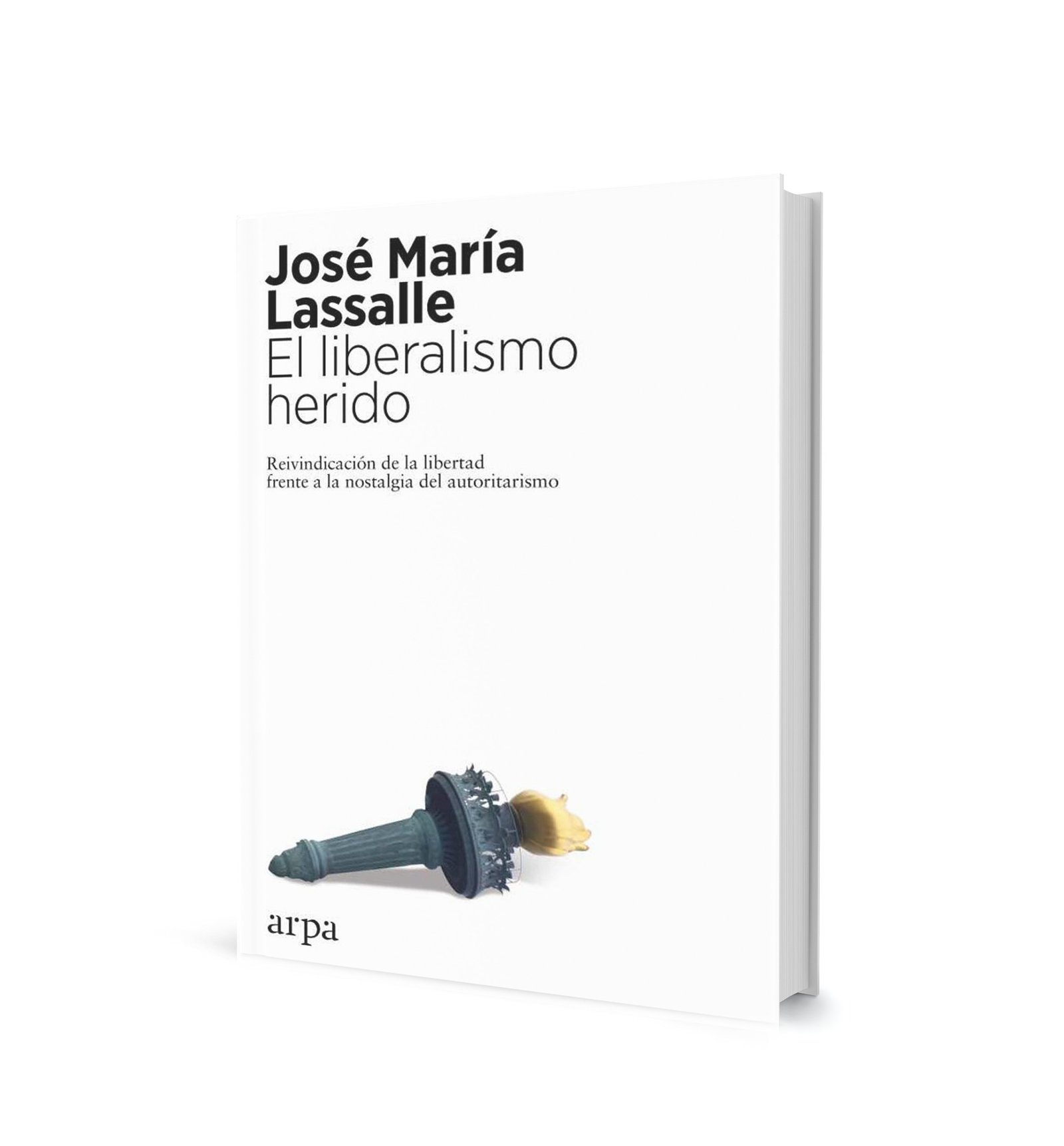
Enlightenment Now by Steven Pinker
BY: Emma Romeu
Photos: Shutterstock, LatinStock y EFE
Following the news could easily make us believe that our time is ever more difficult and violent and that human prosperity may have reached its limit, making it difficult to progress further. Nonetheless, Steven Pinker, a Harvard University professor of psychology who is a popular writer on language, the mind, and human nature, has written a book that posits an alternative way of looking at the world. Now published for the first time in Spanish by Paidós, Enlightenment Now: The Case for Reason, Science, Humanism, and Progress offers a message of hope and brims with optimism about the present and the future.
The Enlightenment, which gained strength in Europe in the last three decades of the 18th century, known as the “Century of Light,” was an intellectual movement that sought a new understanding of the human condition and hoped to illuminate humankind with the clarity of rational thought. Its ideals centered on reason, science, humanism, and progress. “The bulk of this book is devoted defending those ideals in a distinctively 21st-century way: with data,” notes Pinker at the beginning of his book. “More than ever, the ideals of reason, science, humanism, and progress need a wholehearted defense. We take its gifts for granted: newborns who will live more than eight decades, markets overflowing with food, clear water that appears with a flick of a finger, and waste that disappears with another, pills that erase a painful infection…”.
The book is replete with images, notes, and references that buttress the information and the assertion that the Enlightenment has been a triumph and, despite the flaws and defects of our time, we are living the best era of human existence. Furthermore, he argues that violence has not actually increased, nor have its triggers. Quite the opposite, in fact.
The author of this hopeful work welcomes me to his office at Harvard University, where he kindly answers the following questions.
The numbers in your book show that poverty is decreasing, undernourishment and famine are decreasing, and global well-being is increasing. Is there anything in the modern world that is becoming worse because of Enlightenment?

Carbon emissions, species extinctions… I wouldn’t say it’s because of Enlightenment, but it’s certainly because of industrial activity.
Which country or countries in Latin America best follow the ideals of Enlightenment in your opinion?
It’s a mixed picture, because each country, of course, has different forces. It would be hard to answer… But all of the countries are moving in the Enlightenment direction. Democracy is hugely increased in Latin America. When I was an undergraduate student, I think a small minority of countries in Latin America were democratic, at least in South America.
Data about undernourishment in your book shows Latin America in the best position of the developing world. What could be a reason for that?
The green revolution. Particularly in Mexico, the development of vigorous hybrids let the country move from hunger to food exporting. And the growth in economies more generally, the development of markets, and trade…
But the same happens in Asia and other parts of the world…
Well, the answer is complex because Asia is so huge that it would be different for Japan versus Bangladesh, so, I don’t think that there is a simple answer to the question. Maybe it is because Latin America has such intense trade with the United States and the United States is a huge food producer and a huge economic powerhouse. Trade is always more active between neighboring countries. If there is a food shortage in Latin America, American grain and American corn can be easily imported. It is much more difficult to transport food to Africa or Southern Asia.
Also, there may be geographical differences, especially when it comes to Africa. Africa has inherited disadvantages for agriculture, such as thin soil and fewer natural harbors, so it is harder to ship things in and out of the continent. As Jared Diamond pointed out in Guns, Germs and Steel, trade across the Sahara was historically very difficult, which means that Sub-Saharan Africa is more isolated. In the Americas, on the other hand, it was easy to trade along the entire length of the continent, from Canada all the way down to Argentina.
I understand from your book that globalization helps societies with different ways of life develop empathy for one another. Does it really work both ways? Do you think people from developing countries empathize more with rich countries since globalization?
An interesting question. I suspect the answer is yes, but I don’t know for sure. It’s just an example. After 9/11, there were expressions of sympathy with the United States, the world’s richest and most powerful country, from small countries like Jamaica. Jamaica is a much needier country than United States, but the government and people of Jamaica expressed solidarity and sympathy to the United States.
“Dare to understand,” was the Enlightenment motto proclaimed by the philosopher Immanuel Kant in 1784. Does the same motto work in the age of the internet or does the world now require more than “daring to understand”?

Well, along with daring to understand, with the intellectual effort to increase knowledge, there has to be the emotional empathy, the identification with people who are not like oneself. That is fostered by diverse people working together and interacting, so our understanding is visceral as well as intellectual.
What do tribes living in forests and other remote scenarios, like Amazonia, get from technological advances? Is it worthwhile for them to embrace the ideals of Enlightenment?
Well, it’s a difficult question, because different cultures and languages are precious achievements of human societies and the human mind and we don’t want a single culture across the entire globe, or a single language. On the other hand, it would be cruel to deprive people of advances such as antibiotics, modern medicine, and knowledge of the history of the earth, knowledge of science. These are the tensions and I don’t think we know the best way to resolve them.
Probably we should respect the autonomy of people and allow them to choose whether to preserve their way of life or absorb developments from other cultures, including global culture. The most important thing would be to ensure that there is not exploitation or displacement, no involuntary deprivation of the lands and cultures of indigenous people.
You’ve brought to the 21st century the idea that Enlightenment makes happier societies, which is in fact a commendable act of Enlightenment, in my opinion. Are you a happier person since you wrote this book?
I think I’m a more positive person. Happiness is determined by other factors. I can’t say that the election of Donald Trump made me particularly happy. But I think I have had a more positive outlook on the world as a result of writing this book. Yes, knowing that peace and prosperity and literacy are expanding certainly has made me happier, given me a better outlook.
As we wrap up this conversation on the Enlightenment with Steven Pinker, the 21st century continues to unspool and approaches its third decade, still keen on progress, knowledge, humanism, and reason.



